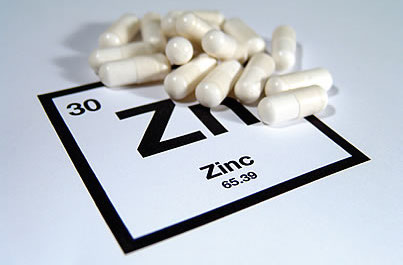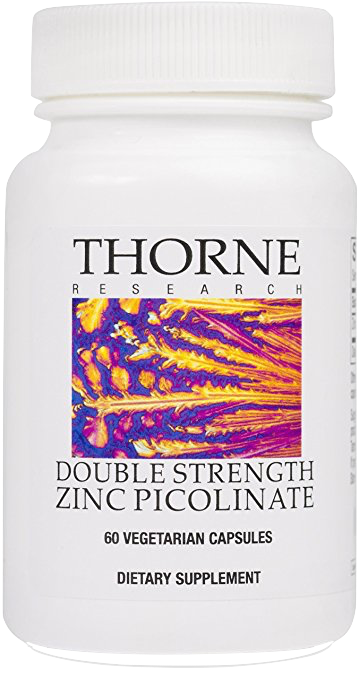Many are surprised to learn that zinc is involved in over 300 enzyme processes – including cell growth and repair. And similar to vitamin D, deficiency is extremely common; even though it has a disastrous impact on our health.
When looking at the chart below, it’s easy to see why the average North American is deficient. Especially when you understand that the RDA is 10-40mg per day, and the body doesn’t store zinc (like it does with other vitamins and minerals).

Meat-eaters have the best chance at consuming enough zinc, and even they’re falling short. Not only because a good chunk of animal protein only provides about 25% of the daily requirement, but because excess copper increases the need for zinc. And environmental influences, like water pipes and cookware in your home, pesticides and fungicides, and even contraceptives (IUDs and Birth Control), have produced a rise in copper levels.
Interestingly, a copper-zinc imbalance in favor of copper has been tied to ADHD, depression, headaches, poor immunity, hyperactivity, and even autism and schizophrenia. Which likely has something to do with zinc’s role in the production of several important neurotransmitters.
A 2009 study in the Journal of Affective Disorders found that those with no improvement on anti-depressants finally showed improvement once zinc was added to their daily regimen.

Because of zinc’s involvement in the production and development of hormones, deficiency is also tied to decreased sperm count, reduced testosterone, poor muscle development, decreased immunity, and skin and gastrointestinal problems. With the link between low zinc levels and negative sexual growth characteristics first getting established in 1961 – for those that developed dwarfism and hypogonadism in rural Iran – and now the evidence clearly showing that chronic deficiency leads to delayed puberty and infertility and dangerously low androgen levels.
The sad part being, that most of us are unknowingly deficient – even if we are following a nutrition plan like Live It NOT Diet! (and eating copious amounts of meat). With some scientists referring to it as the most common micronutrient deficiency globally!
A paper from 2000 in the Journal of Nutrition determined that 45% of adults are getting an inadequate intake of zinc – and that’s compared to the Recommended Daily Allowance (RDA)!

The average RDA for zinc is approximately 10mg/day for adults, with an upper tolerable limit of 40mg/day. But similar to vitamin D, this is simply the ‘safe’ recommendation to avoid deficiency, as research in the American Journal of Physiology showed tolerance to doses exceeding 100mg/day.
Since we’re lucky to get 25% (2.5mg) of the RDA from a single serving of a food ‘high’ in zinc, one should feel comfortable supplementing the upper tolerable limit of 40mg, with the potential for daily doses of 50-75mg. As just like vitamin D – the health risks from a minor deficiency are far greater than any chance of toxicity – and just like magnesium – our needs increase after exercise and during times of stress.
When purchasing a zinc supplement, look for one chelated with an amino acid (end in ‘ate,’ like zinc aspartate or zinc glycinate). Compared to ‘oxide’ forms – that have absorption rates as low as 4-15% – these mineral/amino blends can run as high as 90%!
Stay Lean!
Coach Mike
RELATED ARTICLES:
5 Servings/Day or 1 Serving/Month?
Bone Health With Vitamin D NOT Calcium
Why Vitamin D Toxicity Shouldn't Be a Consideration
Anxiety & Depression - Chemical Imbalance or Dietary Disaster?

